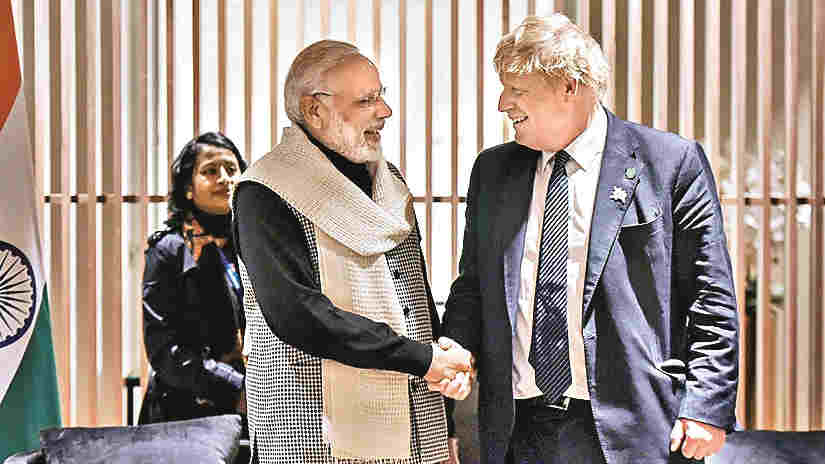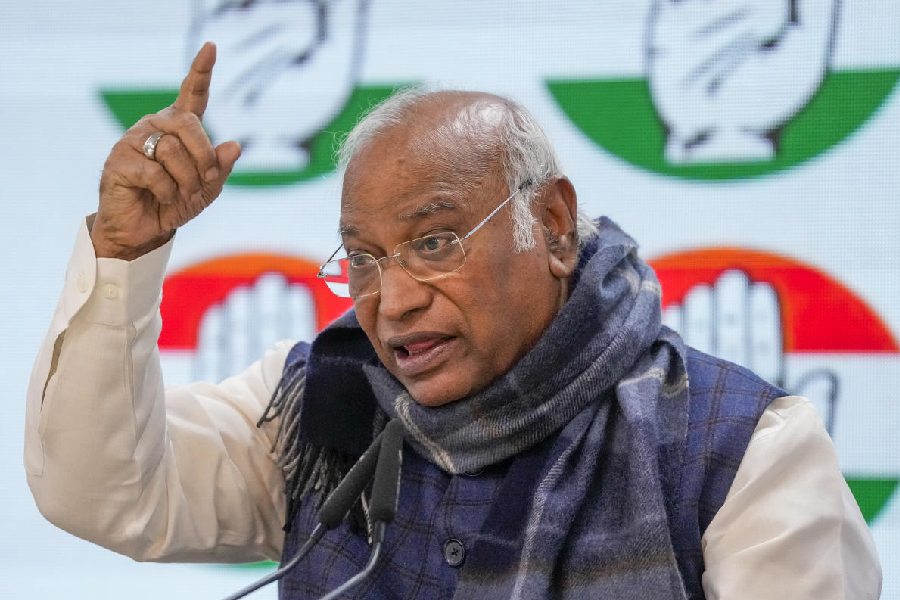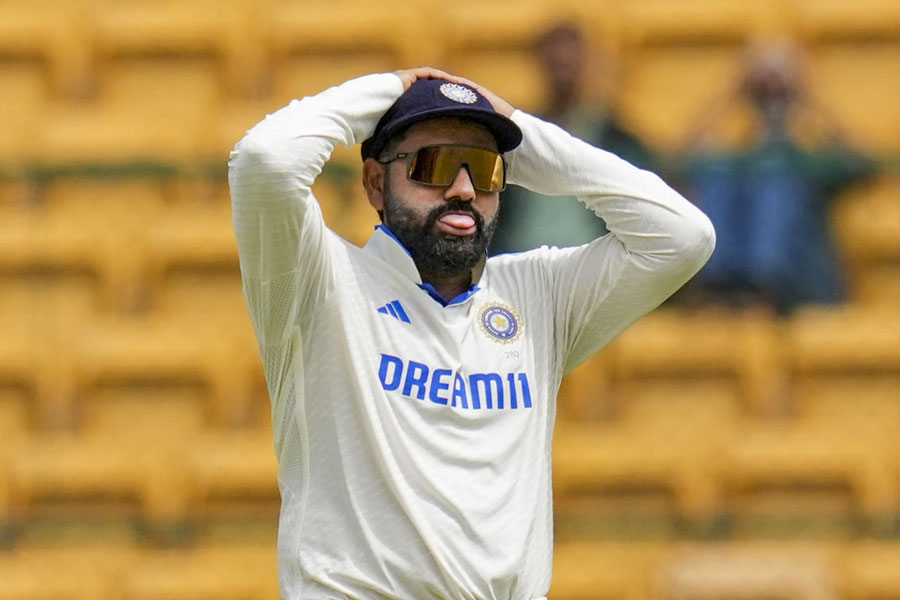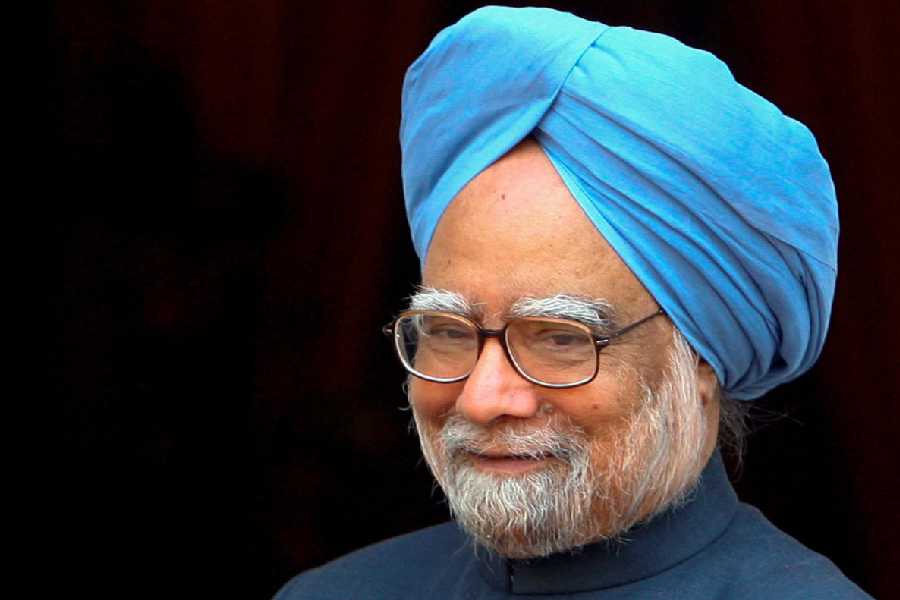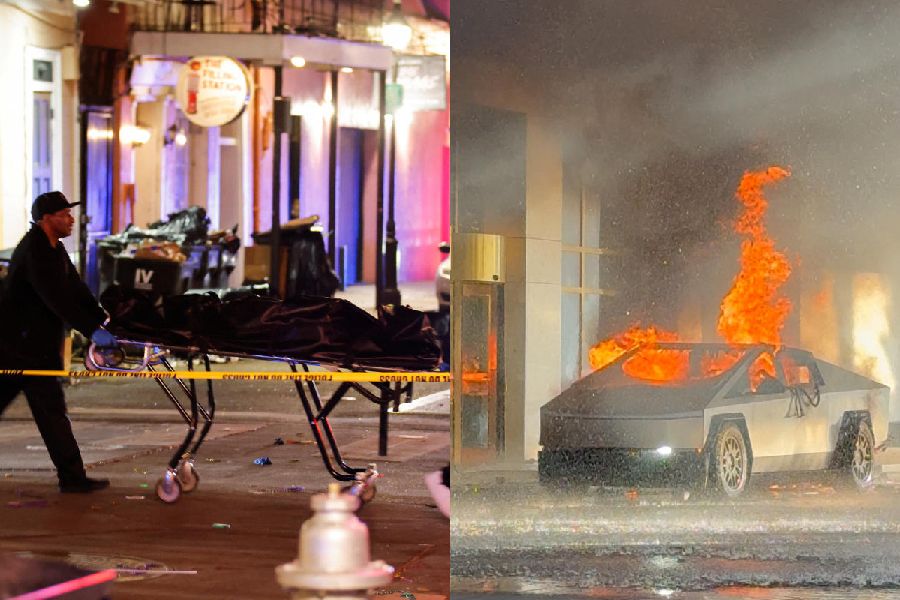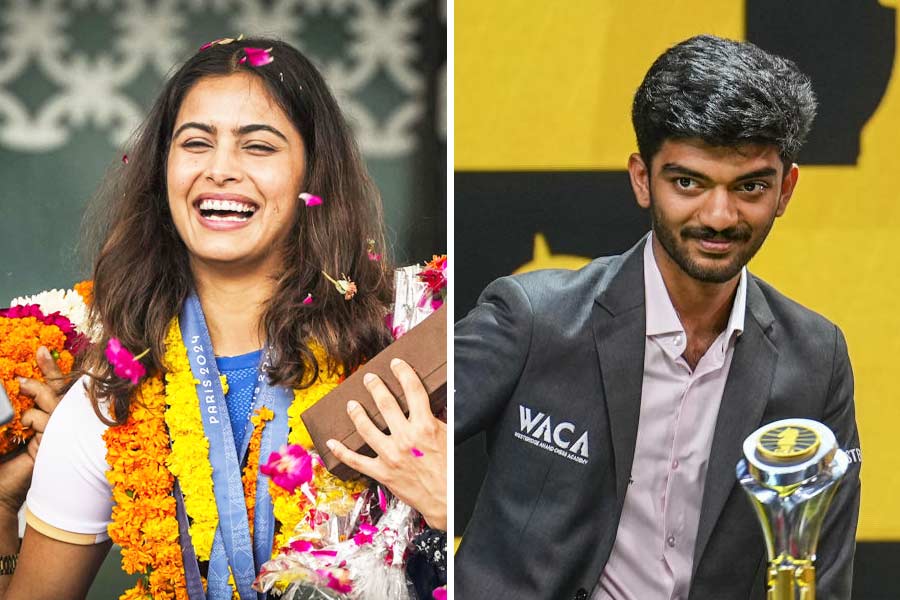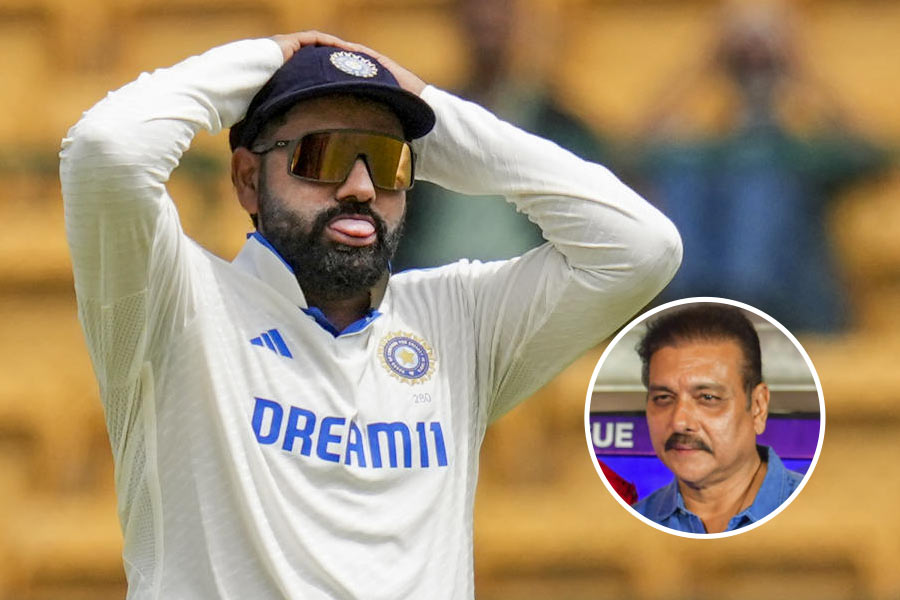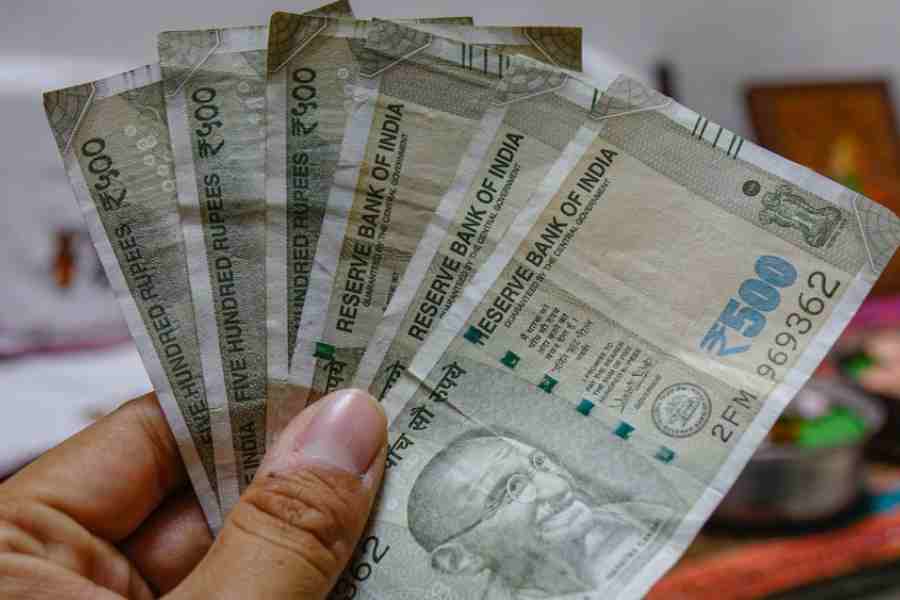Man proposes, god disposes. Having to cancel his India trip deprives Boris Johnson of the chance of sticking another feather in the cap of his Global Britain project which already claims trade agreements with 63 countries covering merchandise worth £885 billion. India’s loss is greater. The British prime minister’s presence on an auspicious occasion like Republic Day would have enabled Indians to remind Narendra Modi that an active Parliament, a relatively free press and uninhibited public opinion are essentials of democratic governance. The alternative, as Joe Biden, the president-elect of the United States of America, warned the other day, is “insurrection”. It remains just as lawless when the storm troopers are government forces.
Johnson and Modi are both at the helm of troubled and grotesquely unequal societies ravaged by the coronavirus. They could have had a lot to discuss if they risked frankness. But the conversation might have tended at times to resemble a fictitious dialogue in which Hendrik Verwoerd, the South African politician who formalized apartheid as an instrument of policy, was asked why he didn’t apply the whip to his opponents. “I did!” he expostulated. “Also the lash and the cane.” Even Verwoerd might seem lily-white compared to two Modi cronies now in the news. Israel’s prime minister, Benjamin Netanyahu, has been indicted for bribery, fraud and breach of trust. Donald Trump faces possible impeachment or an invocation of the 25th amendment declaring him unfit for office. Neither can compare with a British politician of Turkish descent with a divorced half-Sikh wife whose Indian relatives badger him for “clinky” — their word for Scotch — and who hopes that Modi will reduce import duty on alcohol. He is less keen on Modi’s hope of flooding Britain with more Indian immigrants. That is another talking point.
The positives that India and Britain still share are press, Parliament and public opinion. All three have changed vastly in recent years and many of Bagehot’s formulations seem as obscure today as those of Ambedkar. But a government that claims to reflect the wishes of the people and accepts public opinion as the ultimate monarch ignores those three pillars of democracy only at its own peril. The danger is all the greater when leaders delve beyond and below the rational values that hold a modern nation together to seek a common denominator that yields votes by pandering to primal instincts.
To take one instance of a healthy interaction, on January 5 three British newspapers — The Times, The Sun and i — called for daily updates on how many people had been vaccinated against Covid-19. As Nick Ferrari, a firebrand radio journalist, said the next day, not only must journalists ensure that the government is “delivering on giving the vaccine” but “it is the media’s job to ask daily how many jabs have been done”. By then Johnson had already pledged to publish daily figures, starting next Monday, January 11. His promise of “maximum possible transparency” — day by day and jab by jab — came within 10 hours of the initial demand. Although not regarded as the most consistent or decisive of politicians, he is expected to keep the promise. Johnson could have assured Modi that his interventions in the Commons, his frequent television appearances and regular impromptu press conferences flanked by medical specialists and civil servants have enhanced — not diminished — respect for his person and position. It was particularly invigorating to watch Britain’s prime minister in conversation with the veteran journalist and historian, Andrew Marr, who interrupted, corrected and contradicted him without giving offence.
Time was when India’s leaders were also responsive to the media. When I joined The Statesman in 1960, I was told with some pride that Jawaharlal Nehru had acted swiftly on the paper’s editorial suggestion that the rule requiring income tax clearance for Indians travelling abroad should be abolished. If today’s ruling politicians cannot conceive of such respect for the media’s views, the sad paradox is that neither can many of today’s media personnel. When I expressed doubts in a TV discussion in Delhi about the quality of Indian democracy, the sycophantically shrieking anchor at once began trotting out the number of registered voters, voting booths, ballot papers and so on to overwhelm me with an avalanche of mind-boggling numbers that sustained for him the glory of being the world’s largest democracy. His understanding of democratic governance did not go beyond statistics. Regarding his employers, Lee Kuan Yew rebutted the International Press Institute’s claim that a free press curbs political corruption by retorting that many media houses are themselves corrupt.
As for Parliament, the “talking shop” that inspired E.M. Forster’s two cheers, it is to Johnson’s credit that an irritated Labour parliamentarian from Manchester accused the government of wanting “MPs to go back to sitting in parliament permanently”. The House of Commons sat for 40 of last year’s 52 weeks. In contrast, India’s Parliament met for only 33 days — just over four weeks. Johnson could have reminded his host that Parliament is at the core of democracy. Far from being “a frippery, a bauble on the British constitution, it is the British constitution”, as Johnson’s friend and colleague, Jacob Rees-Mogg, leader of the House, told fellow members. “It is at the essence of how our governmental and constitutional system works.” That is supposed to be so in India too.
Recalling that Parliament did not sit in 1349 when the Black Death raged in England, the traditionalist Rees-Mogg, bearing the burdens of past ages, added that modern technology enables MPs to carry out fundamental constitutional functions without impediment. Enter Zoom with the Speaker specifying that the rules and courtesies of the House as well as its dress code must be extended to the virtual Parliament. The Lords did better. Peers who attend the red-upholstered chamber are paid £323 per day while those who make only a virtual appearance are fobbed off with a measly £162. The rules don’t say anything about Bame (black, Asian and minority ethnic) life peers notoriously caught out fudging expenses. But members of parliament who settle for Zoom were warned to be mindful of the background: unfortunately for them, the media is not terribly interested in the impressive tomes with which some line the walls of the studies where they take calls.
A Modi-Johnson meeting would not have been the first. But it could have been a useful give-and-take between two superb showmen beset with troubles that neither will admit. In spite of all that bluster, Johnson cannot know how 159 pages of export rules will make an impact on exports. Or how the service sector accounting for 80 per cent of the economy will fare since the 1,246-page Brexit divorce settlement hardly noticed it. One of the world’s biggest-ever immunization drives places Britain’s National Health Service under intense pressure. School closure has left the young confused and fearful. Incentives to businessmen leave out millions. These are only some uncertainties, as Scotland threatens to go its own way with people wondering if the six counties of Northern Ireland will join Ireland’s 26, or Gibraltar return to Spain.
Brexit was the end of a dream. Modi might have prescribed “cooperative federalism” as the antidote. He lauds it for India’s relatively modest — if official figures are to be believed — pandemic toll. In theory, cooperative federalism might enable Europe one day to regain the vision that inspired the first Paneuropean Union in 1923. In practice, it means a powerful centre blending the authority of president and prime minister and enfeebled limbs that are bludgeoned into obedience. It is not consistent with the democracy to which both prime ministers pay obeisance and of which Boris Johnson would have been a refreshing exemplar in weary India.

